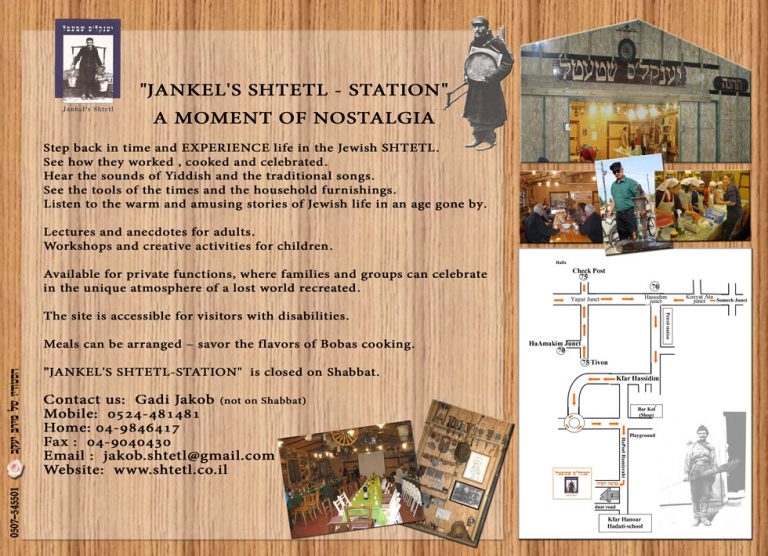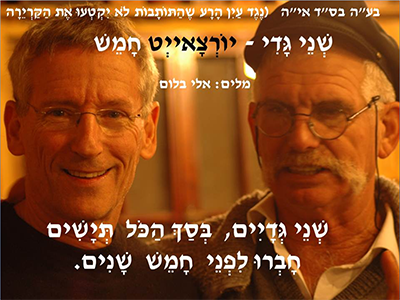Jankel’s Shtetl
Future plans
The reconstruction of a Jewish town.
“A man’s first home is a reflection of his life, he will cherish it to his last breath.”
(Biltzki H.Y., “A Jewish Town”).
The Shtetl – the Jewish town – served as the heart of the Jewish life for several centuries. From the early 16th century to the beginning of the 20th century, it contained the daily life of the Jewish community in Eastern Europe. Within it the Yiddish culture was created and the foundations for the social and political Jewish organizations were laid. It served as the core for rabbis and cantors, as well as renowned authors such as Shalom Alechem, Mendalay …… and Y. L. Peretz.
Simultaneously the streets of the shtetl were busy with Jewish life and from these streets originated the traditional dishes such as gefilte fish and shnaps. Here too were born the “Cheder” and the Clayzmer”.
With the rise of the Zionist movement, and the foundation of the State of Israel, the Shtetl culture was pushed aside and rejected in the attempt to create a new breed of Jews – the Israeli Jew.
However, as Ehad Ha’am stated “A nation without a past cannot move on to its future.” In recent years we have witnessed a dramatic change regarding Jewish heritage. More and more Jews, young and old, religious and secular are retracing their roots. Throughout the world the Yiddish language is being taught and people are reusing its phrases, humor and sayings. This indicates the yearning for the old town aroma and its warmth. Along with this yearning came the understanding that the Jewish town is more than a cradle for the Jewish culture, it is an inseparable part of our genetic code.
This yearning and understanding has given birth to the desire to create “Yankel’s Shtetl” – a restored Jewish town- that would give its visitor a profound Jewish experience.
Yankel’s Shtetl – a Jewish Town, tourist attraction.
“If you wish to know the fountain your ancestors drank from… go to the old”. (Bialik H. N.)
Yankel’s Shtetl will fully reconstruct the old Jewish town. Walking through its vibrant streets as a time traveler, one could wander through the authentic workshops: the bakery, carpenter’s, shoemaker and tailor – all offering their services to the visitor. A local restaurant would serve Eastern European Jewish cuisine from Kugel and Kishke to Kneidalach and Kreppalach. A Shtibel, Cheder and Synagogue will appeal to those who wish to experience the spiritual aspect.
Other services will include Clayzmer’s street shows, festive market places, carriage rides around the town, authentic gift shops, theme exhibitions, auditorium, lodging and the option to hold family “simchas”.
All these will come together to create an experience combining heritage and leisure.
Yankel’s Shtetl.



